Marchers Commemorate Day of the Salvadoran Unionist in Wake of Bukele’s Unconstitutional Reelection Bid
Unions carry on the legacy of Febe Elizabeth Velásquez
On Sunday, October 29, Salvadoran union members and allies took to the streets of the country’s capital to denounce President Nayib Bukele’s attacks against organized labor and the working class. The march, commemorating the Day of the Salvadoran Unionist, marks the anniversary of the October 31, 1989 bombing of the National Federation of Salvadoran Workers (FENASTRAS) union hall that killed 9 union leaders and injured 30 more. Among those killed was Febe Elizabeth Velásquez, Secretary General of FENASTRAS and a nationally-recognized leader of the revolutionary union movement.
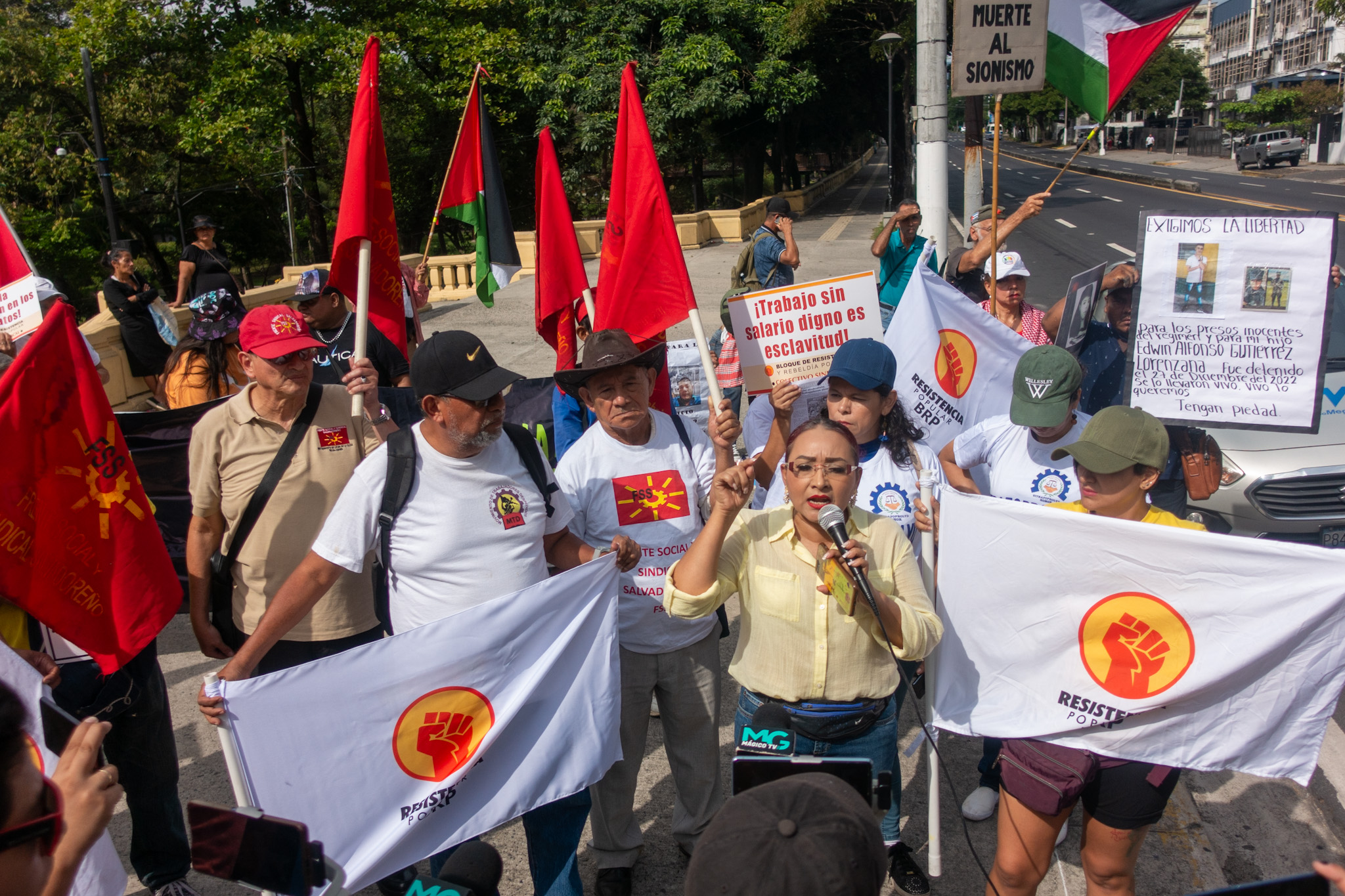
The march was convened by the Popular Resistance and Rebellion Bloc (BRP), whose leaders warned about the deteriorating conditions faced by unions and the working class as a whole. “The situation for organized labor in El Salvador is facing major setbacks. Many of the rights that were gained for the working class have essentially been ignored under this government,” remarked Salomón Alfaro, of the Fired Workers Movement (MDT), a member-organization of the BRP.
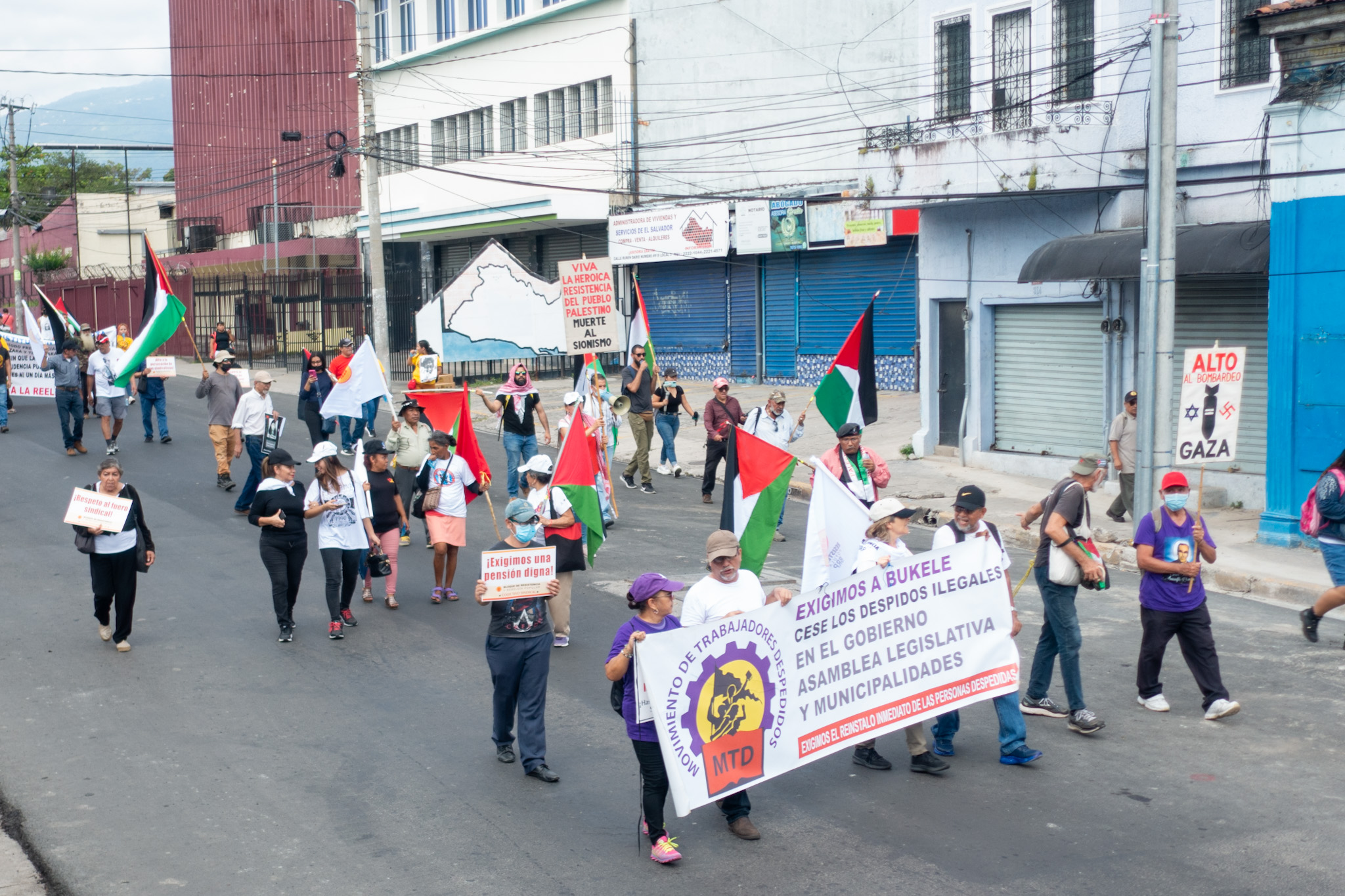
Taking place only days after President Nayib Bukele formally submitted his unconstitutional bid for re-election for approval by the Supreme Electoral Tribunal, the march conveners’ demands were directed specifically to Bukele. Since taking office in 2019, the situation for the country’s workers has steadily declined. The MDT has recorded the arbitrary firing of 21,000 public employees, including 68 union leaders whose dismissals were carried out in defiance of legal protections. March organizers also decried the years-long withholding of 500 union credentials, preventing leaders from performing their legally-protected duties.
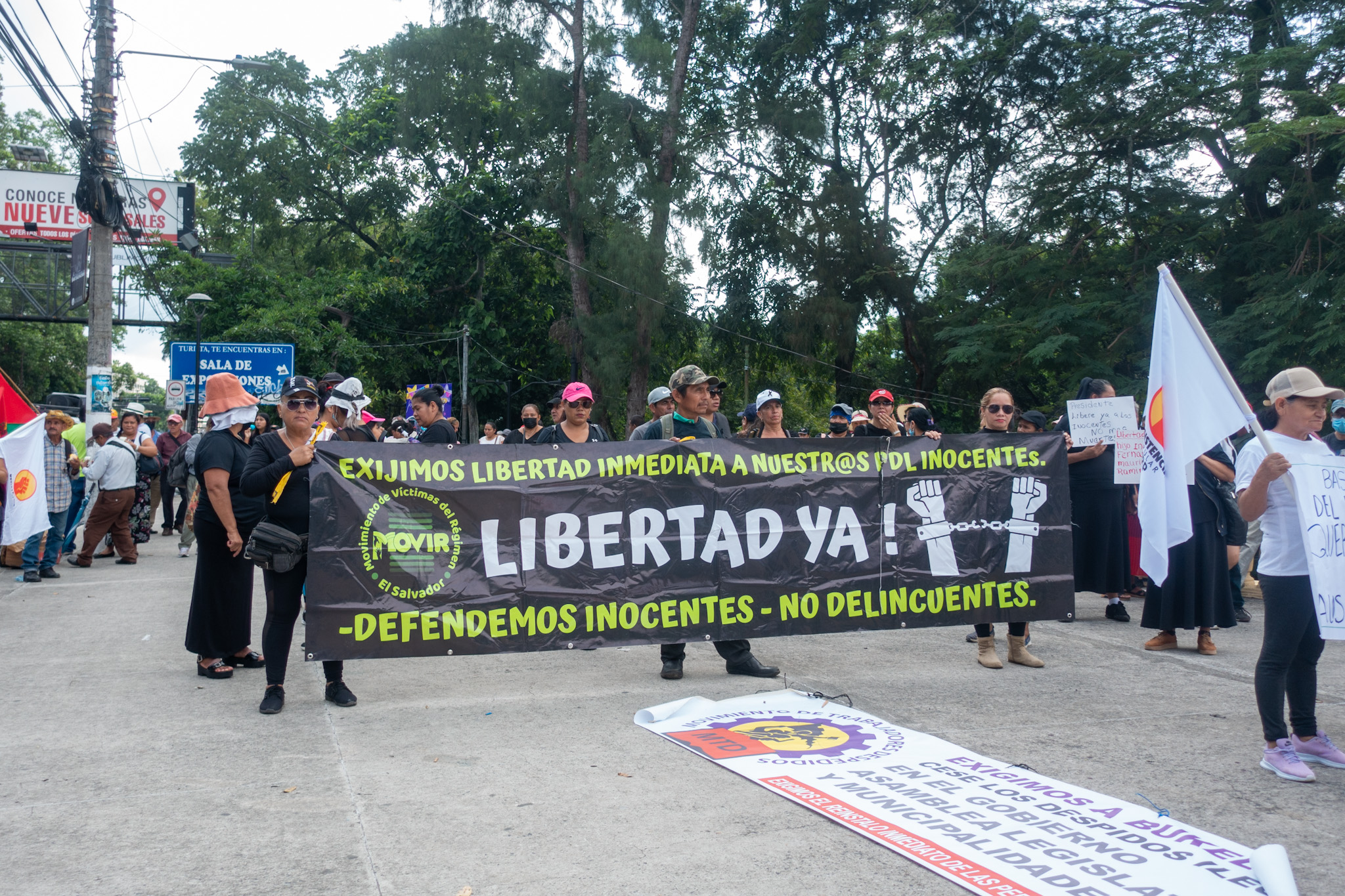
While the majority of demands center around the attacks on workers’ rights, they also call for an end to the country’s now-indefinite State of Exception, originally declared for 30 days by President Bukele in March 2022. Organizers have identified 17 union members that have been arrested under the State of Exception and four remain in prison. They are among the 73,000 people that have been arrested under the State of Exception. Last year, a public union member, José Bonilla, died after spending six months in prison without charges.
A large contingent from the Movement of Regime Victims (MOVIR) was also present at the march. Dressed in black to mourn the hundreds of lives lost under the State of Exception, many of them carried signs that detailed the cases of their loved ones who have been imprisoned, some for nearly the entirety of the now 18-month long measure.
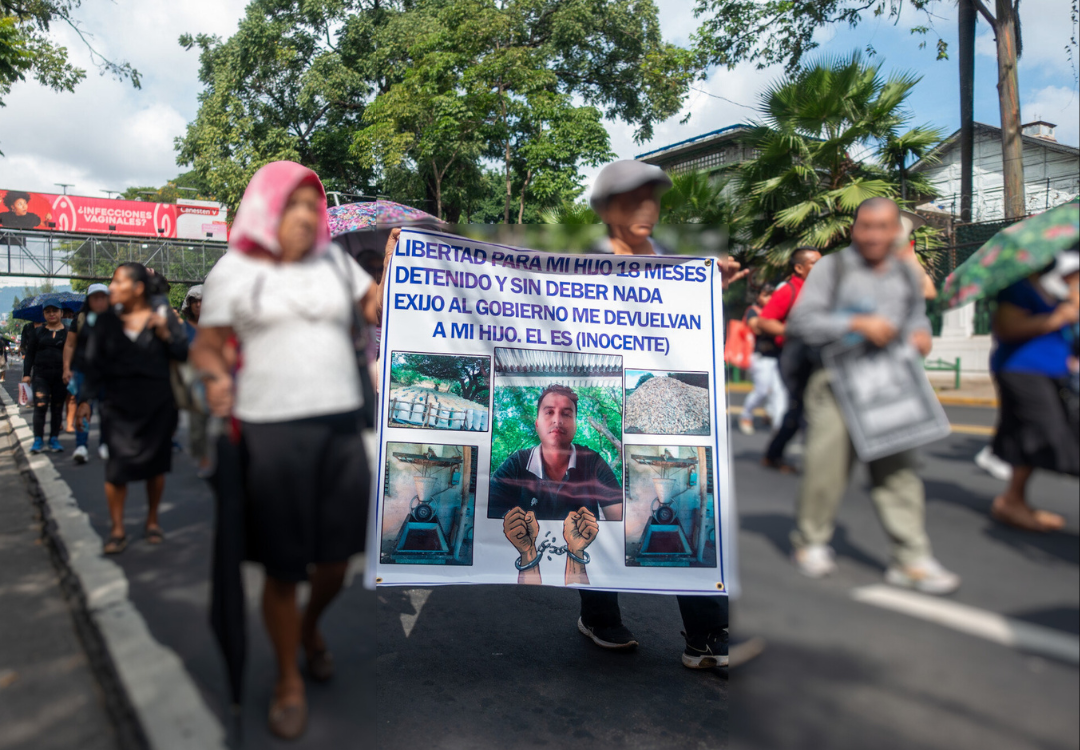
Labor leaders also condemned a stagnant minimum wage in the face of rising food prices, youth emigration driven by a lack of educational and employment opportunities, and recent threats to the Salvadoran Institute for Social Security (ISSS), the country’s public healthcare system.
The march convened at Cuscatlán Park in downtown San Salvador, eventually making its way to the historic Rosario Church in front of Libertad Plaza. The church houses the remains of 21 victims of a massacre carried out by armed forces against members of the popular movement organization LP-28 on October 29, 1979, and its anniversary was also honored by the march. “The martyrs of the October 29 massacre gave their lives fighting against a dictatorship, just as we are organizing in opposition to the dictatorship that is trying to consolidate itself today,” remarked one BRP organizer.
A lively contingent of Palestine solidarity activists were also present, and they highlighted the importance of an internationalist working class struggle. A representative from the group, speaking in front of the Rosario Church, called for an end to the 75-year Israeli bombing, invasion, and occupation of the Gaza Strip.
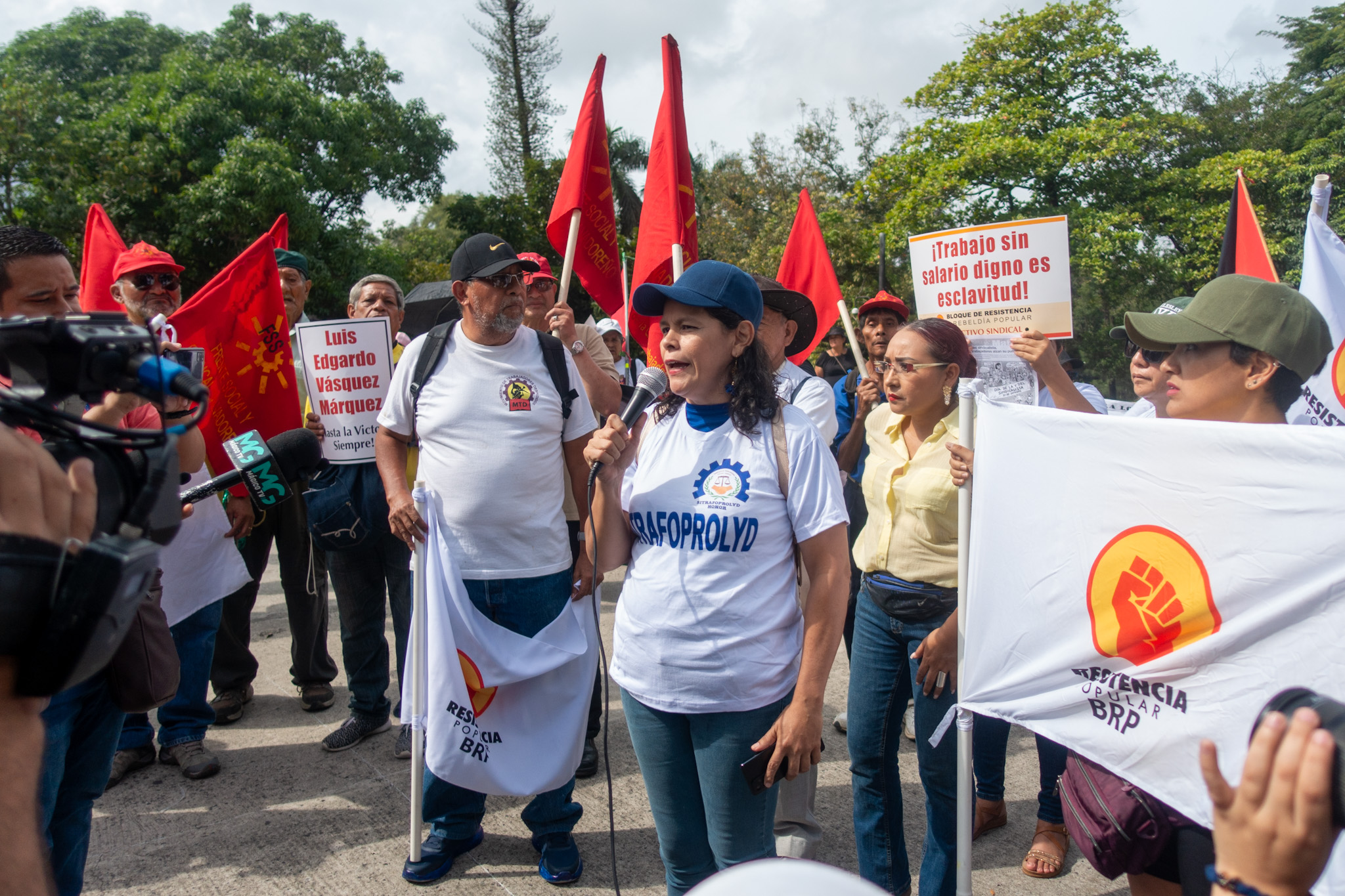
Undeterred by Bukele’s increasingly authoritarian tactics, union leaders and their allies appear determined to carry on the legacy of Febe Elizabeth Velásquez and the rest of the 1989 FENASTRAS martyrs. They called on organized labor to unite in the face of growing attacks on the working class, and reaffirmed their commitment to advancing the historic union movement in El Salvador.

 "I am a CISPES supporter because continuing to fight for social justice and a more people-centered country means continuing the dream and sacrifice of thousands of my fellow Salvadorans who died for that vision.” - Padre Carlos, New York City
"I am a CISPES supporter because continuing to fight for social justice and a more people-centered country means continuing the dream and sacrifice of thousands of my fellow Salvadorans who died for that vision.” - Padre Carlos, New York City

